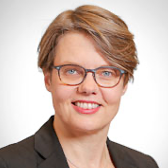Data management and data ecosystems
Track description
The added value of companies is already today decisively dependent on the quality of data and the efficiency of their planning, processing, management and control. Triggered by digitization and the Internet of Things, data is also becoming a core component of business models or new services ("Data-as-a-Service"). Data is increasingly being monetized directly, and new types of data ecosystems are emerging in this way. The recently published data strategies of the German Federal Government and the European Commission underline the importance that data is attributed to the future competitiveness of companies and social prosperity.
Data management encompasses all activities that are necessary to manage data in companies and value networks. This includes in particular organizational tasks and data governance as well as data/information modeling and architectures. Digitization and the Internet of Things have given rise to a wide range of research needs: Data management approaches need to be extended to new data classes, especially unstructured data, and data storage for heterogeneous data. In addition, data ecosystems require data sharing while at the same time ensuring the data sovereignty of the data provider and the protection of the data recipient's trust. There is also a need for research on the institutional, organizational and technical design of data infrastructures that allow for the linking of internal with external and open databases ("open data").
Possible topics
We encourage authors to submit both theory-based and application-oriented papers dealing with data management and data ecosystems to this track. Possible topics include:
● Data management and data quality
● Procedures for defining, evaluating and improving data quality
● Data sharing and multilateral forms of data management
● Governance of data platforms
● Data monetization, data marketplaces and data value
● Theories of data value creation
● Data protection, data security and data sovereignty
● Use and management of external data
● Reuse and share data in ecosystems
● Roles and Configuration of Data Supply Chains / Data Value Chains
● Architectures and standards for data ecosystems
● Interoperability and portability of data in the cloud
Track Chairs

Christine Legner has been Professor of Information Systems at the Faculty of Economics (HEC) at the University of Lausanne since 2011. She also heads the Competence Centers Corporate Data Quality (CC CDQ), which develops concepts and methods for the management of data as a corporate resource in collaboration with 20 European companies. In addition to data management, her research interests include business models, strategic IT planning and business software. She has published more than 100 refereed articles on these topics in scientific journals and conferences, including the Journal of the AIS, Journal of Management Information Systems and Journal of Strategic Information Systems.

Boris Otto is managing director of the Fraunhofer Institute for Software and Systems Engineering ISST and holds the chair for Industrial Information Management at the Technical University of Dortmund. He is also deputy chairman of the International Data Spaces (IDS) Association. His research focuses on industrial data management, data ecosystems and platforms, and digital business models. His work has been published in over 100 articles in scientific journals (e.g. Electronic Markets) and proceedings of scientific conferences (e.g. ICIS and ECIS).

Dirk Stelzer has been Professor of Business Informatics, in particular Information and Knowledge Management, since 2000. He teaches and researches at the TU Ilmenau. His research focuses on data management, information management for digital goods, inter-company IT integration and IT security management. His work has been published in about 90 articles in scientific journals and conferences as well as in textbooks and reference books.
Associate Editors
- Sören Auer, Leibniz Universität Hannover
- Markus Eurich, Universität Lausanne
- Jörg Leukel, Universität Hohenheim
- Matthias Jarke, RWTH
- Allan Hanbury, TU Wien
- Matthias Klier, Universität Ulm
- Wolfgang Maaß, DFKI, Universität des Saarlandes
- Thomas Schäffer, Hochschule Heilbronn
- Alexander Schiller, Universität Regensburg
- Kristin Weber, Hochschule Würzburg-Schweinfurt
- Anette Weisbecker, Fraunhofer IAO, Universität Stuttgart
- Manuel Wiesche, TU Dortmund
- Axel Winkelmann, Universität Würzburg